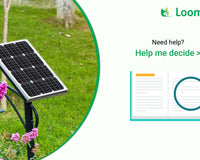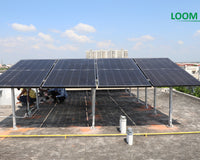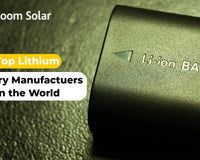A solar charge controller, also known as a solar charge regulator, is a critical component in a solar power system that manages the energy flow between solar panels, a battery bank (if present), and the loads connected to the system. Its primary function is to regulate and control the charging and discharging of batteries in a solar system to ensure their optimal performance and longevity.
The best solar charge controller for your specific needs depends on various factors, including the size and type of your solar panel system, your battery bank, and your budget. There are primarily three types of solar charge controllers:
-
PWM (Pulse-Width Modulation) Charge Controllers: These are older and less expensive controllers that work well for smaller systems. They are less efficient than the other types but can still do the job for basic setups.
-
MPPT (Maximum Power Point Tracking) Charge Controllers: These controllers are more advanced and efficient. They can harvest more energy from your solar panels by finding the optimal voltage at which the panels produce the most power. MPPT controllers are recommended for larger systems and off-grid setups.
-
Basic On/Off Controllers: These controllers are simple on/off switches and are often used for smaller systems with no battery storage. They turn the system on when there's enough sunlight and off when there isn't.
When choosing the best solar charge controller, consider the following:
-
System Size: If you have a small system, a PWM controller may suffice. For larger systems or if you want to maximize energy, go for an MPPT controller.
-
Battery Voltage: Ensure that the controller matches the voltage of your battery bank (12V, 24V, etc.).
-
Solar Panel Voltage and Current: Check if the controller can handle the voltage and current produced by your solar panels.
-
Budget: High-quality MPPT controllers tend to be more expensive than PWM controllers, but they can significantly increase energy efficiency.
-
Features: Some controllers come with additional features like temperature compensation, remote monitoring, and data logging. Consider these if they are important to your setup.
-
Brand and Reviews: Research different brands and read reviews from other users to get an idea of the reliability and performance of a particular charge controller.
Ultimately, the best solar charge controller is the one that meets your system's requirements, fits your budget, and comes from a reliable manufacturer. It's essential to properly size and match the components of your solar system to ensure efficient and trouble-free operation.












